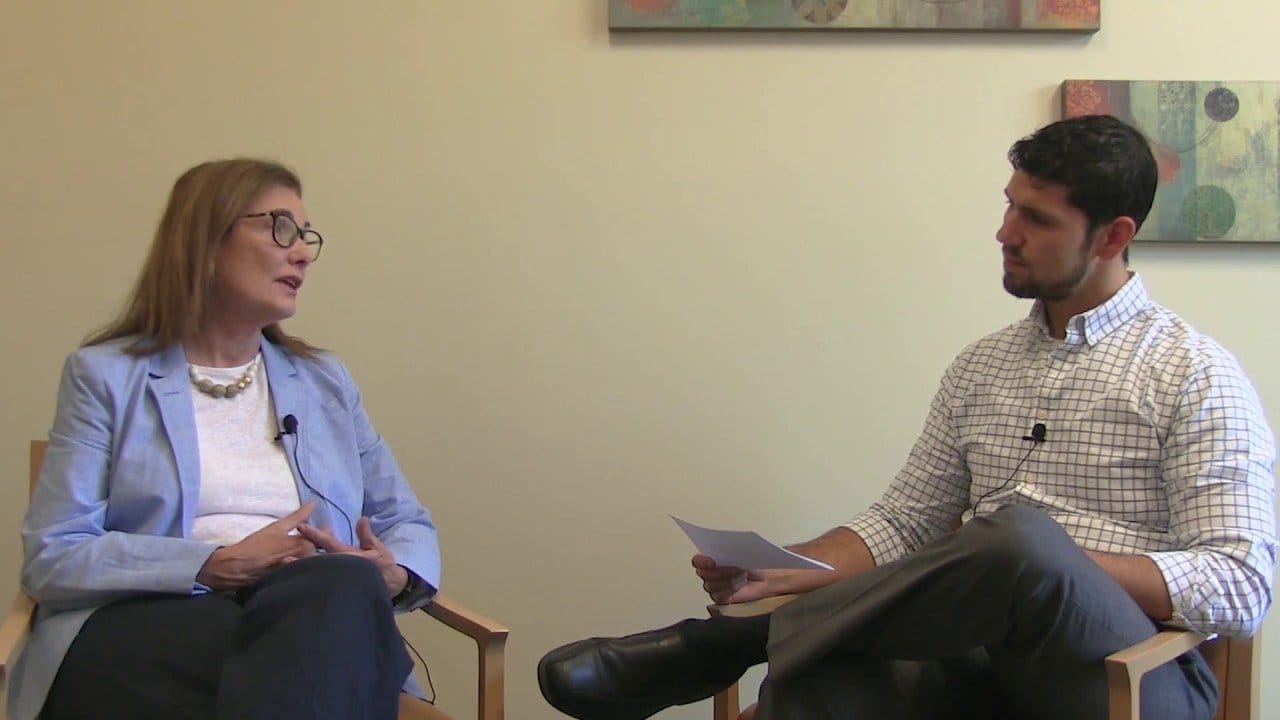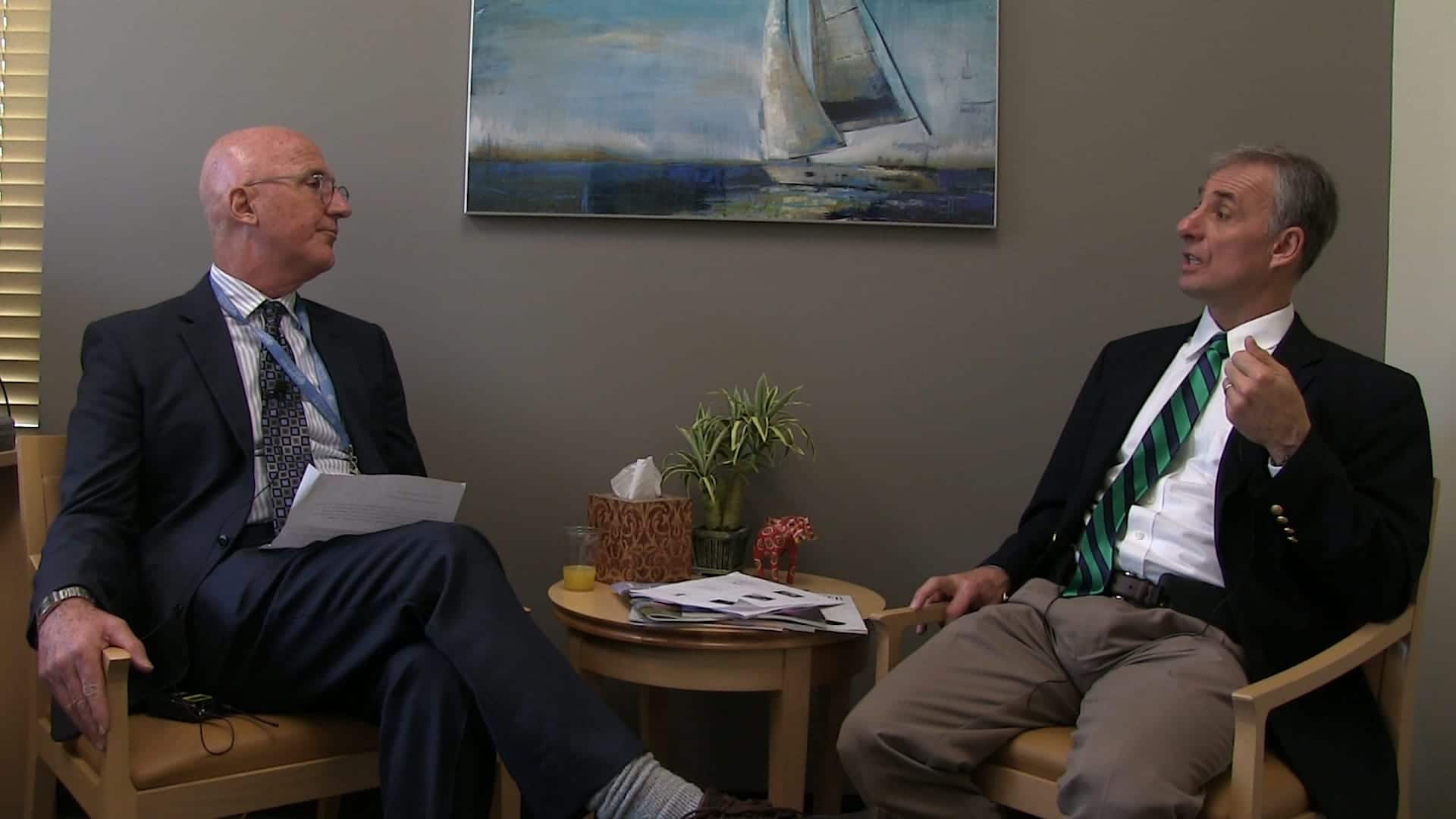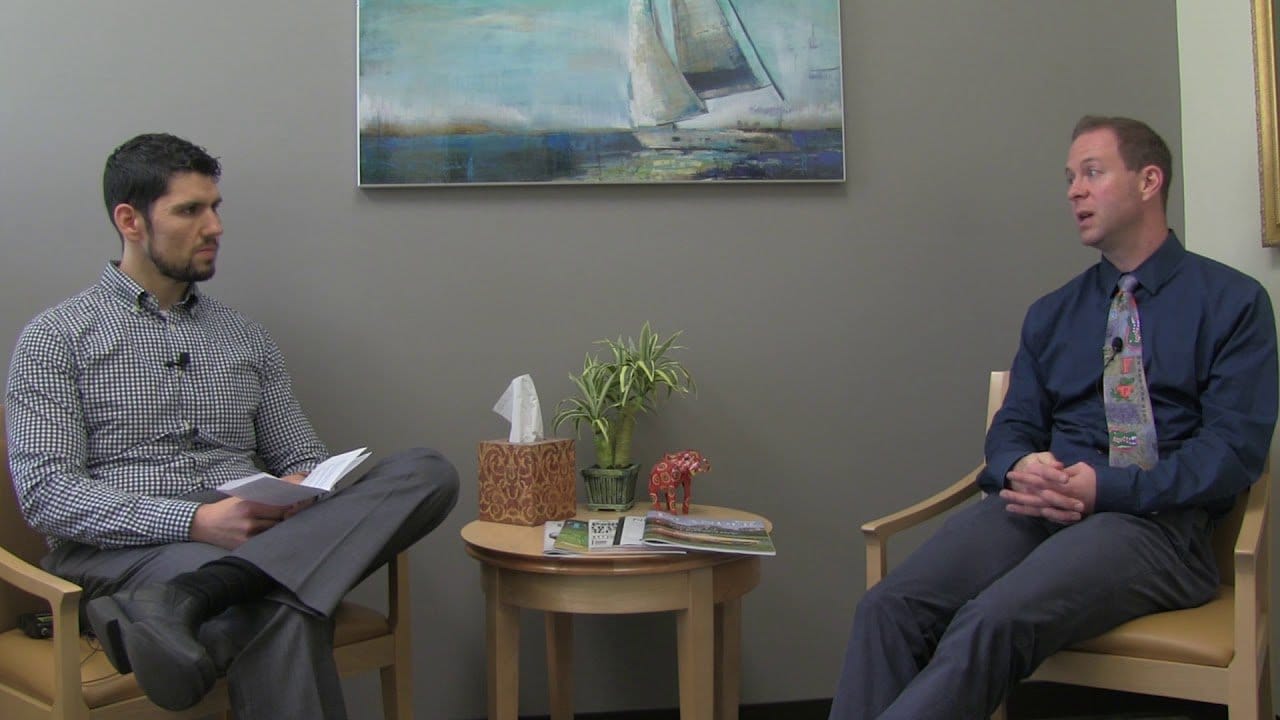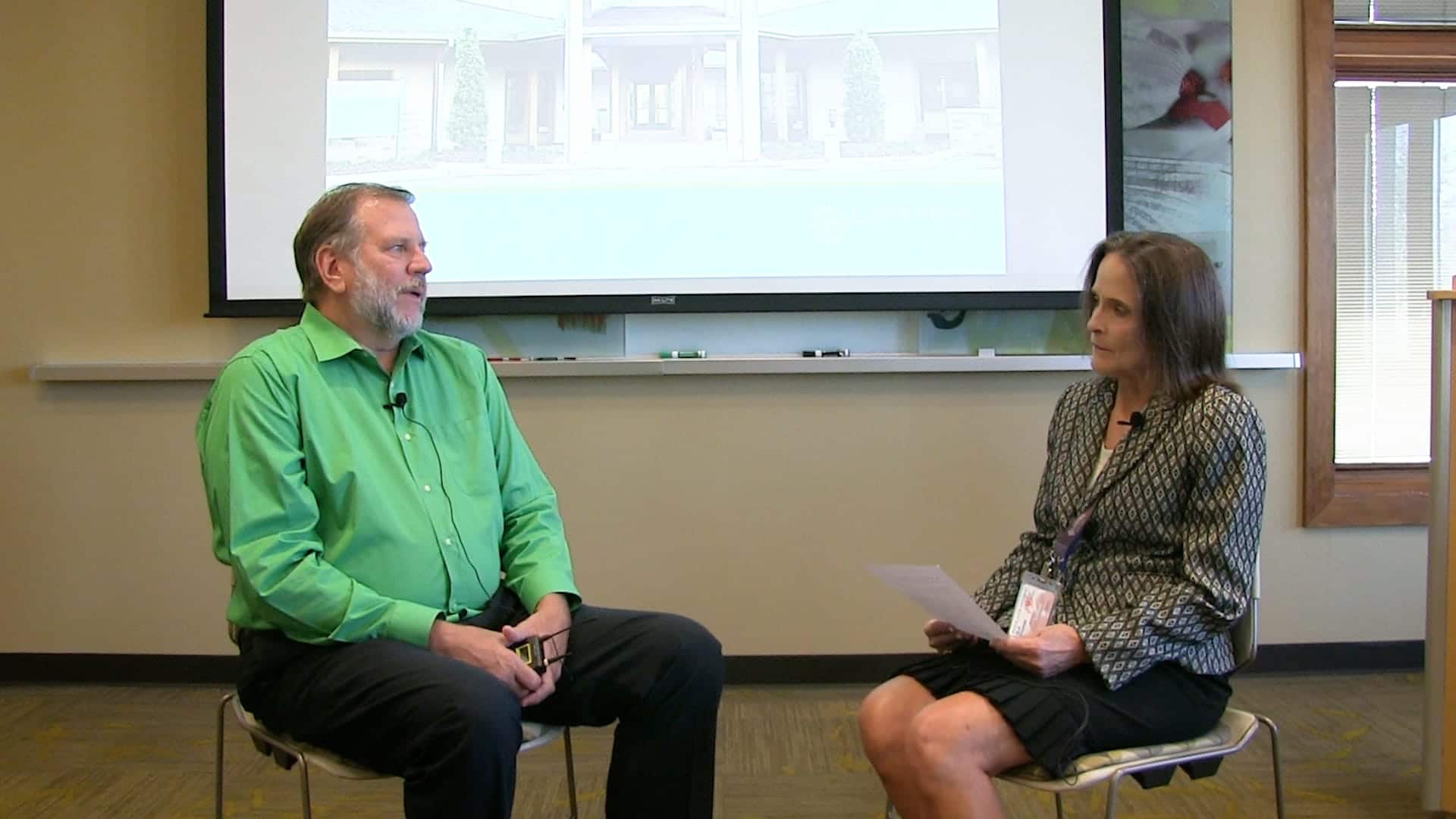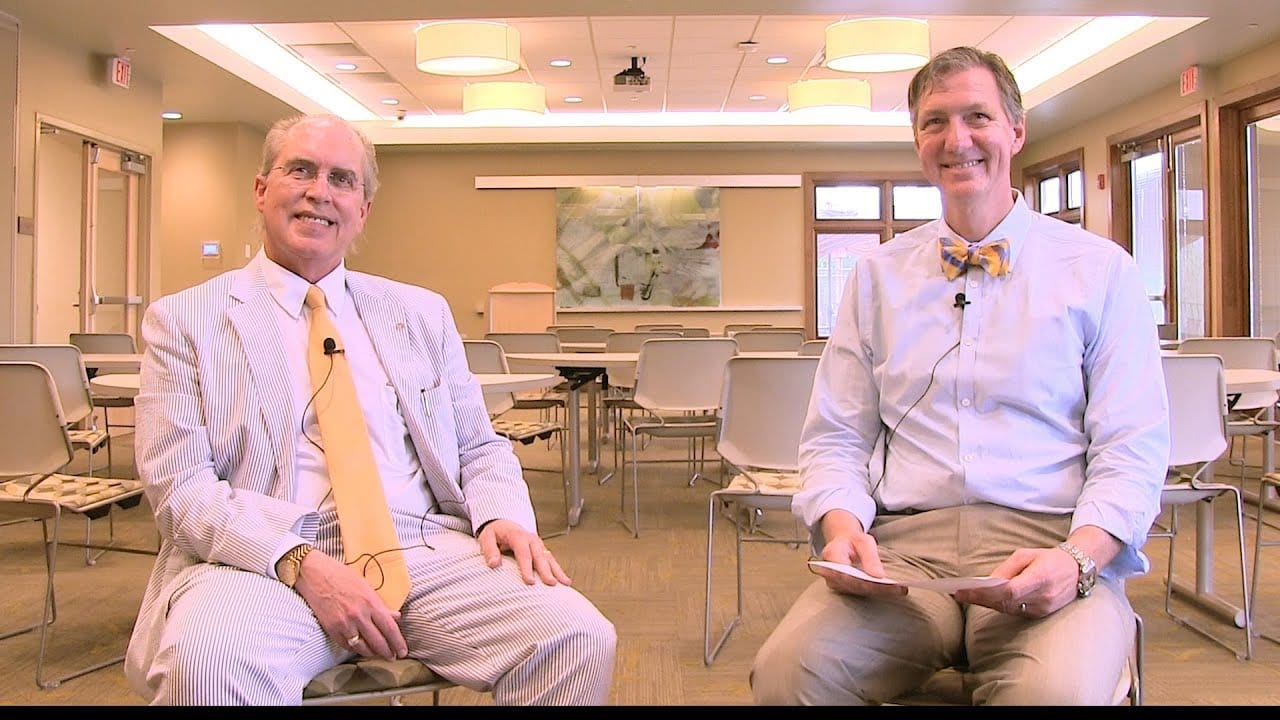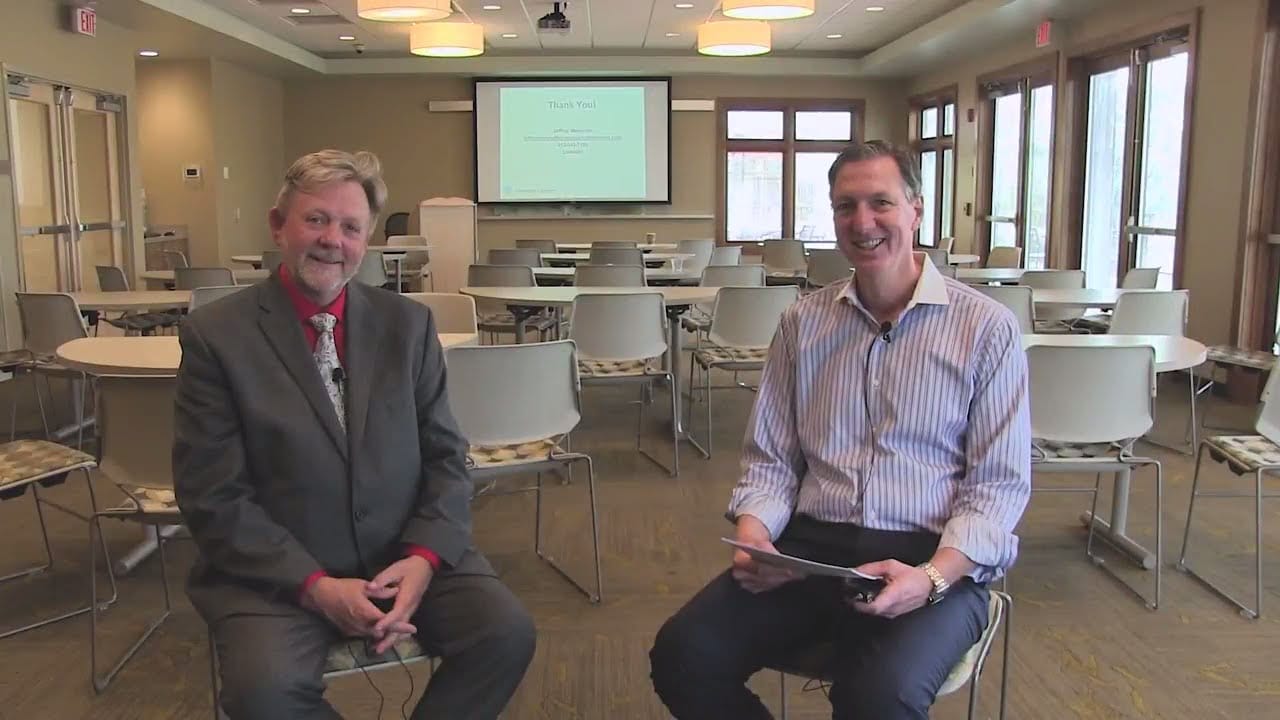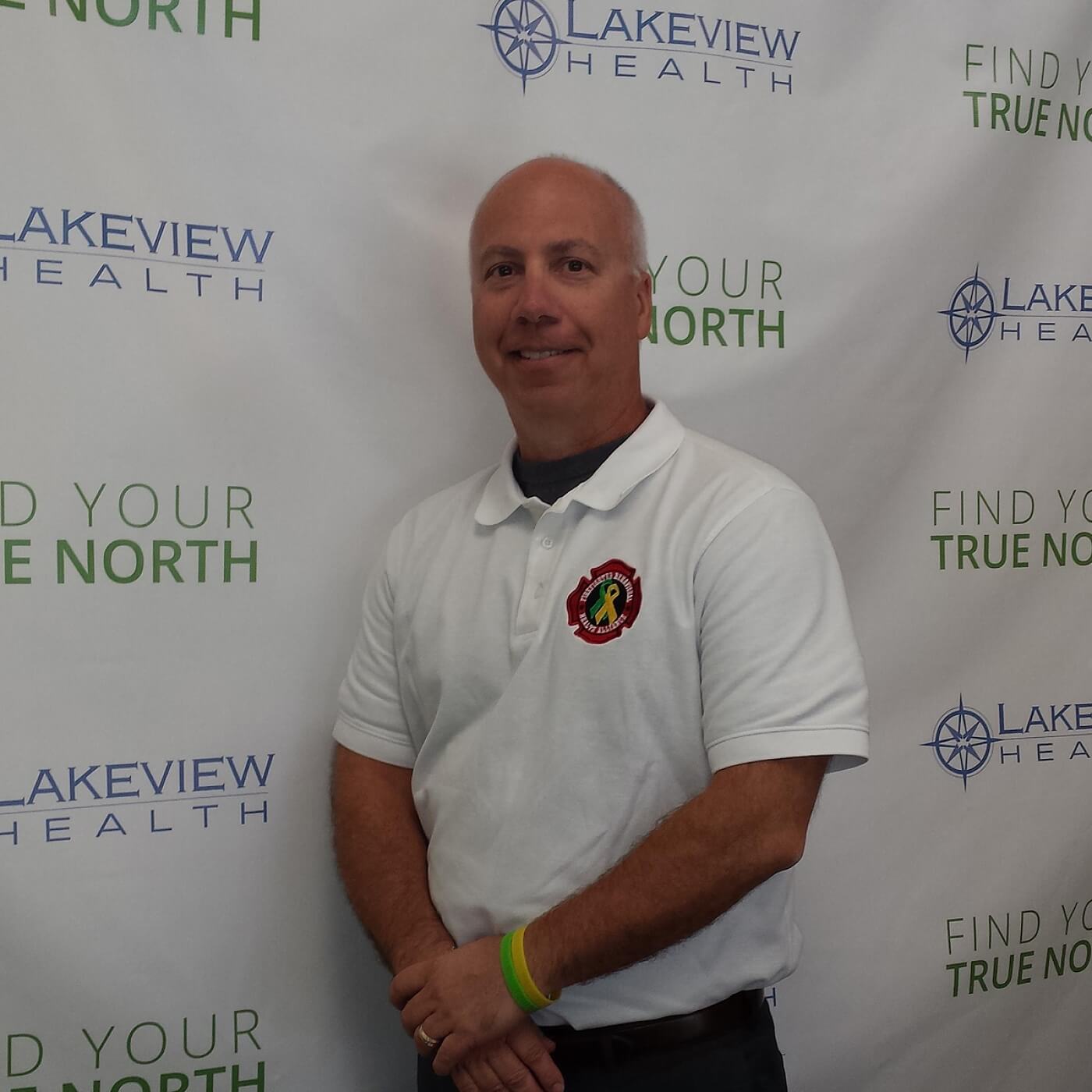

By: Lakeview Health
Gina sits down with Jeff Dill, the founder of Firefighter Behavioral Health Alliance, to discuss how he not only became a firefighter, but the issues some first responders suffer due to the job and how they can be helped.
Podcast Transcript
Gina Thorne: Hello everyone and welcome to the Lakeview Podcast Series. I’m pleased today to be joined with Jeff Dill, who is the founder of Firefighters Behavioral Health Alliance out of Anthem, Arizona. Welcome, Jeff! Jeff Dill: Well thank you, I appreciate it. Gina: It’s good to have you here. So before we talk a little bit about the Firefighters Alliance, can you tell us a little about your background and how you got into not just the behavioral health field, but also how you got into being a firefighter? Jeff: Well, that started back in the late 80s when we were building our house out in Illinois. A neighbor came up to me and said, “Hey, we’re looking for some volunteer firefighters.” I was a truck driver and had no ambition of being a firefighter but I said, “Oh sure, what the heck?” It was a new neighborhood, I was trying to get along well with my new neighbors and all of a sudden I got bit by the bug to be a firefighter and they put me through EMT class, paramedics, fire academy classes, and shortly after – about six years later – in 1995, a new department was being formed in Palatine, Inverness, Illinois and I tested for it. I became a career firefighter in ’95 and I just recently retired in January of this year, so I put overall 26 years in and I truly enjoyed it. I’m 54 years old, I still have a few more years but it becomes a young man’s game as they say. Gina: Ah yeah, well that sounds great that you had that one level of interest and it just bloomed into a career – a 20-year career – that’s fantastic. So you’re also a master’s level clinician as well, so how did that fall into place with being a firefighter? Jeff: Well actually, I credit that to Hurricane Katrina. Being in the fire service at that time was a battalion chief and my chief, he didn’t want me to go down because I had a plethora of jobs to do with my fire department, Palatine Royal. But when firefighters came back, because our division outside of Chicago sent out firefighters, I spoke to them and a lot of them wanted to go to their employee assistance program to talk to counselors about the things that they had done down there, and I started noticing that, because at that time, I had worked part time on the PGA Tour, so I was traveling across the country talking to my brothers and sisters in the fire service, and it was that same theme; those who went down to New Orleans to help out, they wanted to go to some counselor to talk about the things that they saw, and unfortunately the counselors didn’t understand our culture. So they became frustrated and never went back so I thought, “How can I give back to my brothers and sisters?” and that’s when I decided to go to get my master’s and become a licensed counselor. Gina: That’s awesome. Jeff: That bloomed into, in 2009, I founded Counseling Services for Firefighters. That was to teach, through educational workshops, anxiety, stress, and depression. In 2010, I started receiving emails and phone calls from all over the world saying, “Jeff, do you do anything about firefighter suicides?” And I didn’t realize we had a problem. I had been in this job for a while but it wasn’t ever really talked about, so I started contacting all the fire organizations; United States Fire Administration, National Fire Academy, and no one kept any data on our lost brothers and sisters, so in 2011 I founded Firefighters Behavioral Health Alliance. We’re a not for profit and we’re the only known organization in the United States that tracks and validates firefighter and EMT suicides. Gina: So you’re a data tracking service or do you also offer information referral for folks who need access to help? Jeff: Absolutely. We run the gamut. I do workshops all over North America. I was looking at my United flights and I think I’ll have about 100,000 air miles this year by the 1st of October and in two weeks I’m up to the Yukon, so it’s a global issue, there’s no doubt about it. I speak at fire chief conferences and fire departments call us in for workshops but on a weekly basis we get firefighters who call us and say, “Jeff, do you have some counselor in our area that I can go to because our EAP does not have that for us.” So what we try to break down within FBHA is education of firefighters and EMTs and also chaplains and counselors. So we have different workshops that we offer and it’s important. The counselors are good people, because I have many friends that are counselors, but I don’t send firefighters to them because they don’t understand language and the way we talk, and so those educational workshops, because we do what we do and say, “Firefighters, stand up if you need some help,” well, who are we sending them to? We have to send them to people who understand the language and how to handle us and be direct, so that’s why it’s important to the educational process. Gina: So you talk a little bit about the culture of the firefighters, can you give me a little flavor of what that means when you say that? Jeff: Well, when we go into our fire academies, or even our EMT paramedics, we teach you how to carry ladders, and understanding fire behavior, search and rescue, all sorts of training, but there’s no behavioral health training. So we come out efficient, strong firefighters, able to challenging, and you hear the terms “brave” and “heroes” and it’s unfortunate because we start buying into that aspect of it and the downside is though, because of the lack of education, we’re not really expecting that anxiety is going to hit us and the stress of the nature of the calls that we see. That whole culture within us of “be strong, don’t ask for help, handle all of our issues on our own,” and unfortunately one of the first aspects we turn to is addictions and primarily alcohol, and that becomes an issue that we don’t want to talk about all those things that are bothering us because I don’t want to look weak, so we hide it and that’s not doing us any favors in the fire service. Gina: Well it sounds like the growth of your program has also allowed you do adopt an ambassador program which I’m assuming is to work with other like-minded folks such as yourself. Can you tell us a little bit more about that? Jeff: Well, we don’t advertise, really, for FBHA, because how do you advertise something with suicide? So the ambassador program, which we started this year, it’s run by my wife who is also the board president of FBHA, they are predominantly firefighters and they will go out into their communities or their territories and say, “Hey, have you heard about FBHA? This is what we have to offer.” Because like I said, we get numerous calls from fire chiefs or someone saying, “Hey Jeff, we just had a suicide and we don’t know what to do. We’ve never been educated, how do we handle these situations?” Well, if we can take these ambassadors and get them out into the community to let them know that there is some help available and these are the steps that you can take and you can contact FBHA and we’ll help you along in that process because there is no education. And then out of that, some of those ambassadors are instructors, because I started finding, with the numerous amount of workshops, there aren’t enough instructors to help with all the workshops, and we do have two counselors that are ambassadors, so that they can go out and approach the EAPs and say, “Hey, we have workshops to educate your people that are working with the fire department.” So you get the contracts for two years and it would be nice if you understood what their culture is like so we have those trainings as well. Gina: That’s fantastic. It sounds like a great program that you’ve developed. So if someone needed to access your services or to learn more about the alliance, how could they get in touch with you? Jeff: Very easily. They can contact our website which is www. FFBHA.org or they can call me on my cell and that’s 847-209-8208. And like I said, we get calls on a weekly basis, just people looking for some help and we do that for free and try to find them a counselor in their area for whatever the issue is or if they want some information on a workshop. Gina: That’s just fantastic. Jeff: I appreciate it. Gina: Thank you very much for taking time with us today, we really appreciate your visit here at Lakeview. For those of you that are interested in learning more about Lakeview Health, or if you know someone that is suffering from the disease and needs inpatient treatment, feel free to reach out to us at lakeviewhealth.multiplica.dev or you can reach us at 866-460-8416.
